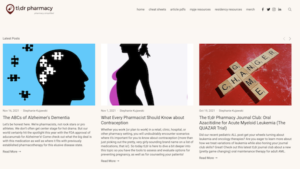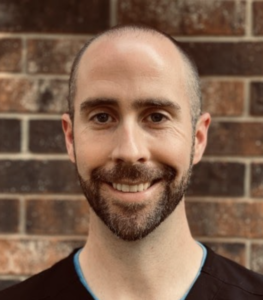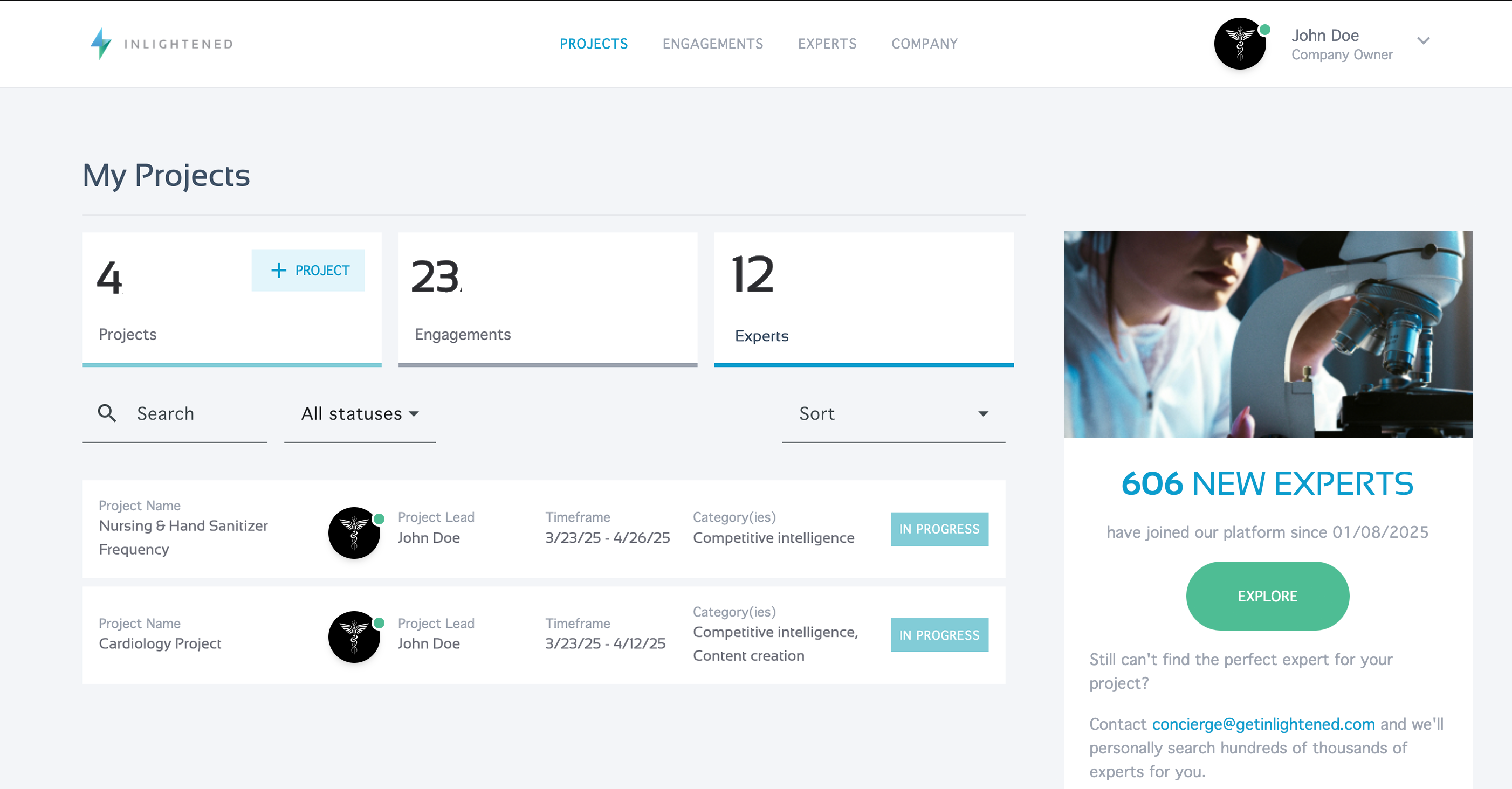Bright Lights: tl;dr pharmacy with Dr. Brandon Dyson
Bright Lights is an ongoing series that highlights the activities, causes, and passions that fall outside of Inlightened Experts’ dedicated day jobs, and truly set them apart. These initiatives represent experts’ abilities to transform their interests and experience into meaningful ventures that drive positive change. This installment of Bright Lights features oncology pharmacist, Brandon Dyson, PharmD, BCOP, BCPS, and his fast-growing education website, tl;dr pharmacy.
How did tl;dr pharmacy come to be? What problem were you trying to solve? Take us from idea to execution.
I was a fairly successful student in pharmacy school. I worked hard, graduated near the top of my class, and matched at a competitive residency program. Then I started residency, and it was like getting a bucket of ice water dumped on my head. The training wheels came off, and I struggled to adjust.

The exams you need to pass to become a licensed pharmacist are all multiple choice. After 4+ years of practice, you’ll likely get very good at taking multiple choice tests, and there is much that you can learn from them. But, unfortunately, real life doesn’t come at you in a multiple choice format. The reality of a practicing pharmacist is much more open-ended.
You’re given a prescription; do you fill it or not? A new medication order comes across your screen; do you verify it? There are a thousand “What If’s” and “It Depends” that you could evaluate. Are there any drug interactions? Are they significant enough to make a therapeutic intervention? What about the patient-specific factors? Are their kidneys and liver working well enough for this drug at this dose? Do they have any allergies that may cause an issue? Is this new medication even necessary in the first place?
All of these “It Depends” scenarios are hard to teach in pharmacy school, and difficult to test with a multiple choice question. But clinical practice as a pharmacist is lived in this gray area. As practitioners, we have to be comfortable with the uncertainty and the open-world nature of pharmacy practice.
The beginnings of tl;dr pharmacy came directly from the difficulties I faced — and eventually overcame — when transitioning from a student to a pharmacist. I’ve always enjoyed teaching and mentoring, and the website is a natural extension of that. We write in-depth articles and cheat sheets that help students and new practitioners connect the dots and fill the gaps in their pharmacy education. We aim to load each piece of content we make with practice pearls that the reader can use immediately. We also try to keep things light and fun, never shying away from a good meme or pop culture reference.
 Can you provide a brief overview of your mission?
Can you provide a brief overview of your mission?
tl;dr pharmacy is what I wish existed when I was in pharmacy school and residency. There’s a gap between the skills that make you successful in pharmacy school and the skills that make you successful as a pharmacist. Our goal is to bridge that gap to make you the most effective practitioner you can be.
Tell us more about tl;dr’s target audience.
tl;dr pharmacy speaks to anyone that is trying to improve their understanding of clinical pharmacy. But the group that we help the most are 4th year pharmacy students and new practitioners. The original seeds of tl;dr pharmacy were planted when I was in this phase of my pharmacy education, so the content of the site naturally gravitates to those that are currently struggling through a difficult adjustment in their professional careers.
 What key milestones has tl;dr accomplished to date?
What key milestones has tl;dr accomplished to date?
- Over 30,000 email subscribers.
- Over 2 million visits to the website from 1.4 million unique visitors.
- Flourishing social communities on LinkedIn, Instagram, Facebook, and Twitter.
- In 2021, we sponsored the attendance of a professional conference for 70 pharmacy students.
- Since our founding, we’ve donated over $25,000 to pharmacy students for professional development.
Can you share an example of someone whose life has been changed through working with tl;dr?
We don’t actively track the progress of our readers, because we aren’t a coaching service. However, we do receive feedback from folks regularly. Here is a recent testimonial:
I am happy to announce that I passed both the NAPLEX and the MPJE on my first go, and am now a licensed Texas Pharmacist! 😃 I put a LOT of time in, but I think I used EVERY article and cheat sheet you ever created, and they were incredibly helpful. THANK YOU to you and the tl;dr pharmacy team for all your effort and your long, coffee-drenched nights staying up writing all this stuff that helped me get through it all. You are on my Christmas Card list FOREVER. -JB
How can people get involved?
The best way to get involved is to join our email list. We don’t solicit, and we don’t spam. You’ll get two of our most popular cheat sheets for free just by signing up. We send exclusive (and useful) content to our email subscribers that isn’t available anywhere else. You can also follow us on LinkedIn, Instagram, Facebook, and Twitter.
Learn more about tl;dr pharmacy.
 Brandon Dyson, PharmD, is board-certified in oncology and pharmacotherapy, and serves as Area Manager of Pharmacy and Admix Services at Texas Oncology. In this role, Dr. Dyson oversees pharmacy operations for sites in the San Antonio, Central and South Texas regions, and is a member of the Collaborative Care and Pharmacy and Therapeutics committees. Dr. Dyson’s clinical background involves outpatient and inpatient practice experiences alike — and includes academic settings — with a focus on cancer care. A lifelong learner uniquely attuned to the intersection of technology and medicine, he is highly experienced in delivering online education, having served as an Associate Professor of Pharmacology for the Georgetown University School of Nursing for several years. Dr. Dyson is also an entrepreneur; he co-founded tl;dr pharmacy, a fast-growing pharmacy education website designed to help students and new practitioners simplify clinical topics, survive residency, and evolve professionally.
Brandon Dyson, PharmD, is board-certified in oncology and pharmacotherapy, and serves as Area Manager of Pharmacy and Admix Services at Texas Oncology. In this role, Dr. Dyson oversees pharmacy operations for sites in the San Antonio, Central and South Texas regions, and is a member of the Collaborative Care and Pharmacy and Therapeutics committees. Dr. Dyson’s clinical background involves outpatient and inpatient practice experiences alike — and includes academic settings — with a focus on cancer care. A lifelong learner uniquely attuned to the intersection of technology and medicine, he is highly experienced in delivering online education, having served as an Associate Professor of Pharmacology for the Georgetown University School of Nursing for several years. Dr. Dyson is also an entrepreneur; he co-founded tl;dr pharmacy, a fast-growing pharmacy education website designed to help students and new practitioners simplify clinical topics, survive residency, and evolve professionally.






